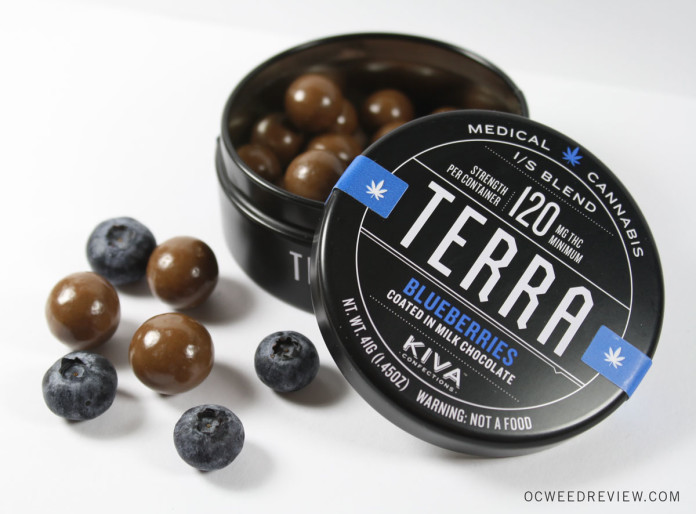In This Article
- Is Smoking Weed Bad for Your Teeth?
- Does Smoking Weed Stain Teeth?
- Does Smoking Weed Cause Bad Breath?
- Is Vaping Weed Bad for Teeth?
- Maintaining Oral Health When Smoking Weed
- Alternatives to Smoking Weed
- Can weed help with toothache?
- Does marijuana chewing gum work?
- Can weed smoking ruin braces or retainers?
- Can my dentist tell if I smoke weed?
- Can smoking weed cause "smoker's teeth?"
- References
Smoking is one of the most popular ways of consuming cannabis, often through joints or bongs. However, smoking is not the healthiest consumption method, since it can impact the lungs, throat and mouth. It can also exacerbate any respiratory issues. For healthy users, it can affect oral hygiene.
According to the CDC, 1 in 4 adults have untreated tooth decay, 46% of adults over 30 show signs of gum disease, with 9% having severe gum disease. Other oral hygiene issues include tooth loss, oral cancers, and chronic diseases.
Smoking tobacco has been correlated with a higher prevalence of dental issues like tooth loss and periodontitis which can lead to other secondary symptoms like pain, issues with sleep, and bad breath.1 While cannabis use may be beneficial in treating the symptoms of oral ailments, many wonder if it can negatively impact oral health.
Is Smoking Weed Bad for Your Teeth?
There is limited research regarding cannabis smoke specifically and issues related to overall dental health compared to the studies about tobacco and oral health. However, one study noted that although tobacco and cannabis are two different substances, the over 4,000 chemicals produced when heat or flame is applied to them and combustion happens are relatively the same. Though the researchers note that cannabis cigarettes (joints) are smoked at much lower rates than tobacco cigarettes, it may be the closest insight consumers have to how cannabis smoke can affect oral hygiene.2
Tobacco smoke has been well-documented as a high-risk factor for developing periodontal disease.3 This inflammation of the gums can cause them to bleed, lead to periodontal pocketing, gingival recession, bad breath, and even tooth loss. 4
Consumers worried about these issues may want to seek alternative methods to their cannabis consumption.
Does Smoking Weed Stain Teeth?

There are no direct studies about cannabis smoke and teeth discoloration, but cigarette smoke is known to cause this.5 While it is unknown if cannabis smoke specifically causes discoloration of the teeth, some users roll special joints called spliffs. Spliffs require the user to mix various amounts of tobacco with their cannabis flower. Smoking spliffs may increase the likelihood of staining your teeth.
While stained teeth may not directly affect oral health or hygiene, they can impact a person's confidence and other related issues.
Does Smoking Weed Cause Bad Breath?
Bad breath, or halitosis, seems to be the most common negative effect of smoking for several reasons. Smoking can lead to many other oral ailments like gum disease, inflammation, or infections, all of which can lead to bad breath. Additionally, cannabis consumption – particularly smoking – is well known to cause a symptom called dry mouth – often called cotton mouth – which can negatively impact the aroma of a person's breath.
The good news about bad breath is that if it’s just the weed causing it, it can usually be remedied quickly by brushing your teeth, using mouthwash, or flossing. It is not uncommon for cannabis smokers to carry around gum or beverages to prevent dry mouth and keep their breath fresh.
Is Vaping Weed Bad for Teeth?

Vaping has become increasingly popular over the last few years. From cartridges to disposables, handheld electronic devices are convenient, discreet, and potent while simultaneously available in a wide selection across most markets.
Since vaping technology is relatively new, there is still limited research regarding how vape inhalation compares to smoke. One study found that although it is believed to be the ‘healthier’ alternative, vaping had similar effects on the lungs and throat as cigarette smoke.6 While the study was just done on tobacco vapes, it still may be risky enough to consider for cannabis vapes as well.
Regarding vapes and oral health affecting the teeth and breath, another study found that vape users were slightly more likely to have gum disease and decay. However, this study was conducted with nicotine vapes, which often have added ingredients like flavorings and sugar alcohols like glycerol or polyethylene glycol.7 There is no research on any direct effect cannabis vaping may have on teeth and breath. For consumers worried about their teeth, gums, and mouth health, it may be better to search for cannabis vape products that do not have added flavorings or other additives.
Maintaining Oral Health When Smoking Weed
Smoking cannabis may not have the same intense effects on oral health as tobacco, but it may increase the risk of developing periodontal disease, tooth discoloration, and halitosis. While there are alternatives to smoking cannabis, like edibles or tinctures, some users may still prefer the inhalation method. For this reason, it’s best to practice healthy oral hygiene habits.
Best practices for maintaining oral health when smoking weed are the same as if you’re not smoking. The CDC recommends the following practices for the best oral hygiene:
- Drink fluoridated water
- Brush teeth thoroughly twice a day with fluoride toothpaste.
- Floss daily between the teeth.
- Visit your dentist at least once a year.
- Do not use any tobacco products.
- Limit alcoholic drinks.
- If you have diabetes, work to maintain control of the disease.
- If your medication causes dry mouth, ask for a different medication.
- If dry mouth cannot be avoided, drink plenty of water, chew sugarless gum, and avoid tobacco products and alcohol.
Cannabis smokers use several methods to keep issues like bad breath and dry mouth at bay. These include:
- Using clean glassware like pipes, bongs, and dabs
- Consuming mints
- Chewing gum
- Eating fruit
- Drinking water or other refreshing beverages
While these techniques do not guarantee that you won’t develop any adverse effects of smoking, they can help to minimize the risk and keep symptoms of dry mouth at bay.
Alternatives to Smoking Weed

There is more than one way to consume cannabis. Besides smoking, some are better methods to maintain the health of your teeth.
While edibles are usually the first option that comes to mind as a smoking alternative, they may still risk affecting oral health. Edibles usually come in the form of gummies, baked goods, or flavored beverages with added sugars. Sugar has long been noted for increasing the likelihood of developing dental issues like cavities, gum disease and the overall teeth health.8 It may be best to search for edibles low in sugar if you consume cannabis through this method.
Tinctures and capsules may be the best method to consume cannabis if you want to avoid the risks of damaging your teeth through smoking. Tinctures are usually made with an MCT oil, which has been shown in one study to improve oral health by reducing plaque.9 Since capsules are usually a concentrate in some form of pill case, they pose virtually no risk of affecting the health of your gums and teeth.
Can weed help with toothache?
In some cases, yes. CBD, in particular, has been studied for its effect on toothaches and has been found to be an effective treatment.10 While doctors and dentists urge further research is needed, CBD has been considered and, in some cases, prescribed as a possible alternative to traditional dental treatment methods.
CBD can be infused into oral hygiene products like mouthwash, toothpaste, mints, gum, and floss.
Does marijuana chewing gum work?
Maybe. If THC is ingested via gum, it may be absorbed through the mouth rather than the digestive system. Consuming cannabinoids via the mucus membranes utilizes the same process as tinctures. Depending on the quality of the infused gum product, it may be an effective way to consume cannabis while simultaneously keeping your breath fresh. It’s a rare product to find on the market, and there isn’t yet any consumer feedback on its effectiveness.
Can weed smoking ruin braces or retainers?
Since smoking may increase adverse side effects like plaque buildup, gum disease, decaying teeth, and discoloration, dentists strongly advise against it while wearing braces or a retainer. Beyond the damage to the teeth, smoking may hinder the effectiveness of the braces equipment and retainer.11
Can my dentist tell if I smoke weed?
Probably not, unless you smoked right before you headed into your appointment. Even then, if it’s a regular check-up, cannabis consumption may not concern them. However, if you are undergoing any dental surgery that requires you to be under anesthesia, it is crucial that you inform your doctor. Cannabis use may affect the effectiveness of the anesthesia.
Can smoking weed cause "smoker's teeth?"
"Smoker's teeth" is a term for a condition resulting when the teeth of a person who regularly smokes are severely stained and filled with plaque buildup and other oral ailments. It results from poor oral hygiene and heavy nicotine smoke. While smoking may negatively impact the health of your teeth, it may not be as intensely harsh on them as tobacco-based products. If you’re starting to develop smoker's teeth, visit a dentist as soon as possible. Regularly practice healthy oral hygiene to avoid plaque buildup, gum disease, or tooth decay.
References
- Gajendra S, McIntosh S, Ghosh S. Effects of tobacco product use on oral health and the role of oral healthcare providers in cessation: A narrative review. Tob Induc Dis. 2023;21:12. Published 2023 Jan 25. doi:10.18332/tid/157203
↩︎ - Henry JA, Oldfield WL, Kon OM. Comparing cannabis with tobacco. BMJ. 2003;326(7396):942-943. doi:10.1136/bmj.326.7396.942
↩︎ - Borojevic T. Smoking and periodontal disease. Mater Sociomed. 2012;24(4):274-276. doi:10.5455/msm.2012.24.274-276
↩︎ - Kauss AR, Antunes M, Zanetti F, et al. Influence of tobacco smoking on the development of halitosis. Toxicol Rep. 2022;9:316-322. Published 2022 Mar 6. doi:10.1016/j.toxrep.2022.02.012
↩︎ - Alkhatib MN, Holt RD, Bedi R. Smoking and tooth discolouration: findings from a national cross-sectional study. BMC Public Health. 2005;5:27. Published 2005 Mar 24. doi:10.1186/1471-2458-5-27
↩︎ - Darabseh MZ, Selfe J, Morse CI, Degens H. Is vaping better than smoking for cardiorespiratory and muscle function?. Multidiscip Respir Med. 2020;15(1):674. Published 2020 Jul 3. doi:10.4081/mrm.2020.674
↩︎ - Holliday R, Chaffee BW, Jakubovics NS, Kist R, Preshaw PM. Electronic Cigarettes and Oral Health. J Dent Res. 2021;100(9):906-913. doi:10.1177/00220345211002116
↩︎ - Jeong J, Kim HS, Lee D, Kim K, Kim YH. Association between Four Dietary Patterns and the Risk of Periodontal Diseases: A Systematic Review and Meta-Analysis. Nutrients. 2022;14(20):4362. Published 2022 Oct 18. doi:10.3390/nu14204362
↩︎ - Peng TR, Cheng HY, Wu TW, Ng BK. Effectiveness of Oil Pulling for Improving Oral Health: A Meta-Analysis. Healthcare (Basel). 2022;10(10):1991. Published 2022 Oct 11. doi:10.3390/healthcare10101991
↩︎ - David C, Elizalde-Hernández A, Barboza AS, Cardoso GC, Santos MBF, Moraes RR. Cannabidiol in Dentistry: A Scoping Review. Dentistry Journal. 2022; 10(10):193. https://doi.org/10.3390/dj10100193
↩︎ - Jyothish S, Athanasiou AE, Makrygiannakis MA, Kaklamanos EG. Effect of nicotine exposure on the rate of orthodontic tooth movement: A meta-analysis based on animal studies. PLoS One. 2021;16(2):e0247011. Published 2021 Feb 17. doi:10.1371/journal.pone.0247011
↩︎
The information in this article and any included images or charts are for educational purposes only. This information is neither a substitute for, nor does it replace, professional legal advice or medical advice, diagnosis, or treatment. If you have any concerns or questions about laws, regulations, or your health, you should always consult with an attorney, physician or other licensed professional.




